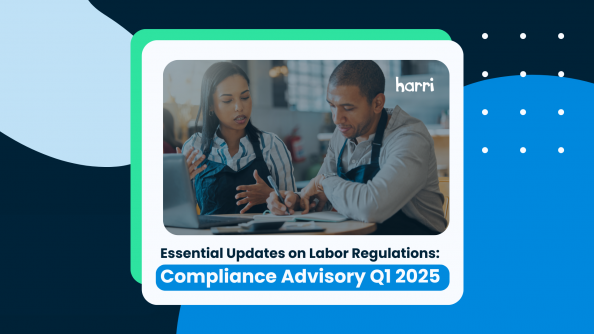How Video Interviews Offer Better Insight and Convenience

- By Harri Insider Team | October 8, 2019
For the sake of time, many hiring managers may opt to conduct phone interviews over in-person meetings when vetting candidates for a position. Yet candidates are now able to submit video responses to interview questions that can be recorded and answered on their own time. Compared to phone interviews, video interviews provide more convenience for both interviewer and interviewee. What’s more, they can deliver the kind of valuable insight typical of a face-to-face meeting.
Why Video Matters
Again and again, research has proven that people’s nonverbal communication – for example, what they wear, how they wear their clothes, their facial expressions, body gestures, tone of voice, and posture – matters just as much as what is said in an interview. That’s because nonverbal cues affect how people understand what you are attempting to communicate.
For instance, behavior such as smiling and leaning forward is read as warmer and more engaged and ultimately, colors how the other person interprets what is being said. In short, our body and words work as a total package when communicating.
Such first impressions and non-verbal cues will be essential to candidates’ success on the job, particularly in the hospitality industry, where employees are either interacting with customers directly on a daily basis or working with others as part of a team to provide excellent customer service. A video interview can appropriately assess their demeanor and whether they’ll fit into the existing culture of the workplace.
Added Convenience
We are all familiar with the downsides of phone interviews. Consider that you have 25 candidates to vet – you must find an available time for both parties to connect and chat on the phone. This often means several back and forth emails and then last-minute rescheduling if something else comes up for each of the 25 candidates. Additionally, if the candidate is currently employed, they may have trouble finding a free (and quiet) 30 minutes to speak during work hours.
Likewise, coordinating to bring a series of candidates into the office for face-to-face interviews requires additional planning and expense – it’s best saved for when the decision is down to just a few people. Some candidates may not be able to devote the time to come to the office and sit for an on-site interview that is likely longer due to small talk. This may filter out qualified candidates are just strapped for time.
On the flip side, by sending candidates a question or two that they will answer via a recorded video response, they can find time after or before work to provide a thoughtful and focused response. There’s no time spent trying to sync packed schedules for either party. Hiring managers can also increase the number of candidates in the vetting cycle as sending out more video questions doesn’t require much extra time or resources. And because the video responses are brief and targeted, more candidates can be reviewed and considered, ultimately leading to a greater chance of finding a suitable hire.
Collaborated Review
In addition to removing some of the scheduling challenges of interviewing, video responses have big advantages in the review stage. Once the candidates submit their video responses, multiple people within the organization can easily review the candidates and provide feedback on whether they should progress to the next stage of the vetting process. The videos can also be replayed multiple times and compared as the pool of possible candidates is narrowed.
Proof of Their Resourcefulness
Asking candidates to record a video response to an interview question means they can also be evaluated for how they are able to complete a straightforward task. It will prove they are able to give the response some thought, find time to record the video with intention, and understand technology to the extent that they can record the video and submitted.
As the majority of Americans have the right tools to turn their cameras on themselves in their quest to work with a brand, the time is right to roll out video interview questions on a large scale. According to Pew Research, 81% of people in the U.S. have smartphones and nearly three-quarters of U.S. adults now own desktop or laptop computers.
With video interviews now offered by Harri, hiring manager will be able to find better talent faster by more efficient screening, increased collaboration, and a more engaged interaction.




















